
Rosewood Essential Oil
Rosewood essential oil is a versatile and popular choice in the world of aromatherapy. With its woody and floral aroma, it blends well with other essential oils and can be used in a variety of applications.
£5.00 – £95.00Price range: £5.00 through £95.00
Description
The World of Aromatherapy’s Rosewood Essential Oil
🌹 Immerse yourself in the gentle embrace of Rosewood Essential Oil, a delicate treasure in our collection.
🎵 With its harmonious, sweet, and woody notes, it serenades the senses, bringing balance and calm to your surroundings.
💤 Cherished for its soothing properties, it’s an ally against stress and offers a peaceful respite after long days.
🍃 Derived with utmost care through steam distillation, the oil’s purity and authenticity remain unblemished.
💫 Elevate your aromatic journey with The World of Aromatherapy’s Rosewood Essential Oil, and drift into nature’s gentle lullaby.
Latin Name : Aniba Rosaeodora
Part of Plant Used : Wood
Source : Brasil
Extraction Method : Steam Distillation
The health benefits of Rosewood Essential Oil can be attributed to its properties as an analgesic, antidepressant, antiseptic, aphrodisiac, antibacterial, cephalic, deodorant, insecticide, and a stimulating substance. It is extracted from the rosewood tree.
This essential oil can take away your depression and leave you smiling within minutes. The mild, sweet, spicy, and floral aroma of this oil does the trick and is thus favored by aromatherapy specialists. It drives away sadness and disappointment and prepares you to take on life with a new and positive perspective. It can be very good for those who recently failed or are feeling down, whether it is in terms of academics, professional situations, or relationships.
Although not strong, this oil serves as a mild analgesic and can give you relief from slight headaches, toothaches, and pain in the muscles and joints. This oil can keep your brain cool, active, sharp, and alert and can take away headaches as well. This will also improve your memory and help protect you from neurotic disorders.
This oil has insecticidal properties and can kill small insects like mosquitoes, lice, bed bugs, fleas, and ants. You can also use it in vaporizers, sprays, room fresheners, and floor washes. If rubbed on the skin, it keeps away mosquitoes as well.
Additional information
| Weight | 0.04 kg |
|---|---|
| Size | 10ml, 50ml, 500ml |
You must be logged in to post a review.
Related Products
Related products
-
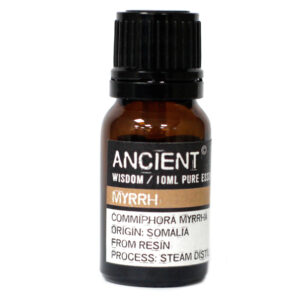
Myrrh Essential Oil
£22.95 – £675.00Price range: £22.95 through £675.00 Select options This product has multiple variants. The options may be chosen on the product page -
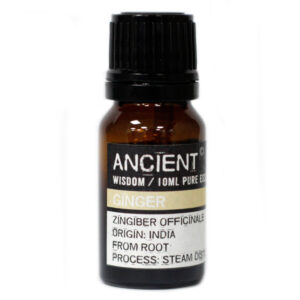
Ginger Essential Oil
£6.25 – £179.00Price range: £6.25 through £179.00 Select options This product has multiple variants. The options may be chosen on the product page -
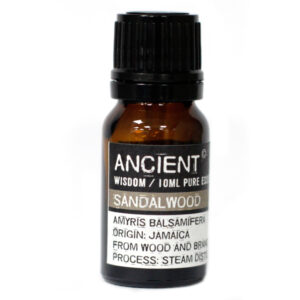
Sandalwood Amyris Essential Oil
£7.50 – £195.00Price range: £7.50 through £195.00 Select options This product has multiple variants. The options may be chosen on the product page -
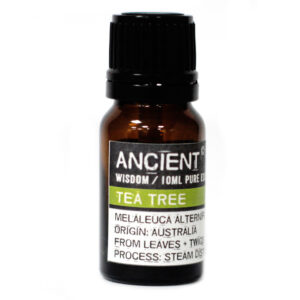
Tea Tree Essential Oil
£3.95 – £69.00Price range: £3.95 through £69.00 Select options This product has multiple variants. The options may be chosen on the product page
Rosewood Essential Oil from The World of Aromatherapy: Benefits and Uses
Rosewood essential oil is a versatile and popular choice in the world of aromatherapy. With its woody and floral aroma, it blends well with other essential oils and can be used in a variety of applications. This oil is derived from the wood of the rosewood tree, which is native to Brazil and Peru. However, due to unethical harvesting, rosewood is now an endangered species, making it important to source this oil responsibly.
Understanding the properties and benefits of rosewood essential oil is crucial for anyone interested in aromatherapy. This oil is known for its antibacterial and antifungal properties, making it a great choice for skin care. It can also help to reduce stress and anxiety, promote relaxation, and improve overall mood. With its sweet and floral aroma, rosewood essential oil is a popular choice for perfumery as well.
Key Takeaways
- Rosewood essential oil is a versatile and popular choice in aromatherapy due to its woody and floral aroma.
- This oil has antibacterial and antifungal properties, making it a great choice for skin care.
- It is important to source rosewood essential oil responsibly due to the endangered status of the rosewood tree.
Understanding Rosewood Essential Oil
Rosewood essential oil is derived from the wood of the Aniba rosaeodora tree, which is native to Brazil and Peru. The botanical name for this tree is Aniba rosaeodora, and it is also known as the Brazilian rosewood tree. The oil is extracted from the wood using the steam distillation method, which involves subjecting the wood to high temperature and pressure to release the essential oil.
Rosewood essential oil has a sweet, woody aroma that is often used in perfumes, soaps, and other cosmetic products. It is also used in aromatherapy to promote relaxation and reduce stress. The oil is known for its antiseptic, anti-inflammatory, and antibacterial properties, which make it a popular choice for treating skin conditions such as acne, eczema, and psoriasis.
The main chemical components of rosewood essential oil are linalool, alpha-terpineol, and limonene. These compounds are responsible for the oil’s therapeutic properties and give it its characteristic scent. Linalool is a natural sedative that helps to reduce anxiety and promote relaxation, while alpha-terpineol has antiseptic and anti-inflammatory properties that make it useful for treating skin conditions.
Rosewood essential oil is a versatile oil that can be used in a variety of ways. It can be applied topically to the skin, either on its own or mixed with a carrier oil, to treat skin conditions or to promote relaxation. It can also be used in a diffuser or added to bath water to create a calming and relaxing atmosphere.
In summary, rosewood essential oil is a valuable oil that has a wide range of therapeutic properties. Its sweet, woody aroma makes it a popular choice for use in perfumes and other cosmetic products, while its antiseptic, anti-inflammatory, and antibacterial properties make it a useful oil for treating skin conditions. Whether used topically or aromatically, rosewood essential oil is a great choice for promoting relaxation and reducing stress.
Origins and Conservation
Rosewood essential oil is extracted from the wood of the Aniba rosaeodora and Aniba parviflora trees, which are native to the Amazon rainforest in Brazil. The oil has a sweet, floral aroma and is used in aromatherapy for its calming and uplifting properties.
However, the harvesting of rosewood trees has led to concerns about the conservation of these endangered species. In the past, the demand for rosewood oil has led to illegal logging and deforestation in the Amazon rainforest, which has had a devastating impact on the ecosystem and the local communities.
To address these concerns, the Brazilian government has implemented measures to protect rosewood trees and promote sustainable harvesting practices. The species is now protected under the Convention on International Trade in Endangered Species of Wild Fauna and Flora (CITES), which regulates the international trade of protected species.
In addition, there are now several initiatives in Brazil aimed at promoting sustainable rosewood oil production. These initiatives involve working with local communities to establish plantations of rosewood trees, which can be harvested without damaging the rainforest ecosystem.
Overall, the conservation of rosewood trees is essential for the preservation of the Amazon rainforest and the protection of endangered species. The promotion of sustainable harvesting practices and the establishment of plantations can help to ensure that the production of rosewood essential oil is both environmentally and socially responsible.
Aromatic Profile of Rosewood Oil
Rosewood essential oil is extracted from the wood of the Aniba rosaeodora tree, which is native to South America. The oil has a sweet, woody, and floral aroma, with hints of spice and fruit. It is a middle note oil, which means it has a moderate evaporation rate and can help balance out the other oils in a blend.
The primary constituent of rosewood oil is linalool, which gives it its characteristic scent. Linalool is also found in lavender and other essential oils, and is known for its calming and relaxing properties. In addition to linalool, rosewood oil contains other terpenes and sesquiterpenes, which contribute to its therapeutic benefits.
Rosewood oil is often used in aromatherapy for its calming and uplifting properties. It can help reduce stress and anxiety, and promote a sense of well-being. The oil is also believed to have immune-boosting and anti-inflammatory properties, and can help relieve respiratory issues such as coughs and congestion.
The aroma of rosewood oil is often described as warm and comforting, with a touch of sweetness. It blends well with other woodsy oils such as cedarwood and sandalwood, as well as floral oils like lavender and geranium. When combined with citrus oils like bergamot or lemon, rosewood oil can add a bright and uplifting note to a blend.
Overall, rosewood essential oil is a versatile and popular oil in aromatherapy, with a pleasant and soothing aroma and a range of therapeutic benefits.
Chemical Components
Rosewood essential oil is rich in a variety of chemical components. The major constituent of rosewood oil is linalool, which can make up to 90% of the oil. Linalool is a terpene alcohol that is widely used in the fragrance industry due to its sweet and floral aroma. It is also known for its calming and relaxing properties, making it a popular ingredient in aromatherapy.
Apart from linalool, rosewood oil also contains other important chemical components such as geraniol, limonene, and 1,8-cineole. Geraniol is a terpene alcohol that is commonly found in rose oil and is known for its rose-like aroma. It is also used in the fragrance industry to create floral scents. Limonene is a cyclic terpene that is commonly found in citrus fruits and is known for its fresh, citrusy aroma. It is also used in the fragrance industry to create citrusy scents. 1,8-cineole is a monoterpene that is commonly found in eucalyptus oil and is known for its fresh, minty aroma. It is also used in the fragrance industry to create fresh and minty scents.
The chemical composition of rosewood oil can vary depending on the geographical location and the extraction method used. However, the major components of rosewood oil remain consistent across different varieties. The table below shows the chemical composition of rosewood oil:
| Chemical Component | Percentage |
|---|---|
| Linalool | 85-95% |
| Geraniol | 2-4% |
| Limonene | 1-2% |
| 1,8-cineole | 0.5-1% |
Overall, the chemical components of rosewood essential oil make it a valuable ingredient in aromatherapy and the fragrance industry. Its sweet, floral aroma and calming properties make it a popular choice for relaxation and stress relief.
Benefits and Uses in Aromatherapy
Rosewood essential oil is a versatile oil that has been used in aromatherapy for centuries. It is extracted from the wood of the rosewood tree, which is native to Brazil and Peru. The oil has a sweet, woody, and floral aroma that is soothing and calming. Here are some of the benefits and uses of rosewood essential oil in aromatherapy:
Stress, Depression, and Anxiety
Rosewood essential oil is known for its ability to reduce stress, depression, and anxiety. It has a calming effect on the mind and body, which helps to reduce feelings of anxiety and promote relaxation. The oil can be used in aromatherapy diffusers, massage oils, or added to bathwater to help relieve stress and promote a sense of calm.
Headache Relief
Rosewood essential oil has analgesic properties that make it effective in relieving headaches. When applied topically, the oil can help to reduce inflammation and relieve pain. It can also be used in aromatherapy to help relax the mind and reduce tension, which can help to prevent headaches.
Soothing Properties
Rosewood essential oil has soothing properties that make it useful for treating a variety of skin conditions. It can be used to soothe dry, itchy skin, reduce inflammation, and promote healing. The oil can be added to creams, lotions, or carrier oils for topical application.
Aphrodisiac
Rosewood essential oil is known for its aphrodisiac properties. It can help to stimulate the senses and promote feelings of intimacy and closeness. The oil can be used in massage oils, diffusers, or added to bathwater to help create a romantic and sensual atmosphere.
Overall, rosewood essential oil is a versatile and effective oil that can be used in a variety of ways to promote health and well-being. It is important to use high-quality, pure essential oils and to follow proper dilution guidelines when using them.
Skin Care Benefits
Rosewood essential oil is an excellent choice for skin care. It has a variety of properties that make it an effective treatment for many skin conditions. Here are some of the benefits of using rosewood essential oil for skin care:
Tissue Regenerator
Rosewood essential oil is a powerful tissue regenerator. It tones and regenerates tissues, softens and firms the epidermis, and treats stretch marks, wrinkles, eczema, acne, and other skin conditions. It can help to improve the texture and appearance of the skin, making it look healthier and more youthful.
Acne Treatment
Rosewood essential oil has antibacterial and antifungal properties that make it an effective treatment for acne. It can help to reduce inflammation and redness, and it can also help to prevent the formation of new pimples. When used regularly, rosewood essential oil can help to clear up acne and prevent future breakouts.
Wrinkle Reduction
Rosewood essential oil is also an effective treatment for wrinkles. It can help to reduce the appearance of fine lines and wrinkles, and it can also help to prevent new wrinkles from forming. Rosewood essential oil can help to improve the elasticity of the skin, making it look smoother and more youthful.
Eczema and Psoriasis Treatment
Rosewood essential oil has anti-inflammatory properties that make it an effective treatment for eczema and psoriasis. It can help to reduce redness and inflammation, and it can also help to soothe itching and irritation. When used regularly, rosewood essential oil can help to improve the overall health and appearance of the skin.
Scar and Stretch Mark Treatment
Rosewood essential oil is also an effective treatment for scars and stretch marks. It can help to reduce the appearance of scars and stretch marks, and it can also help to prevent new ones from forming. Rosewood essential oil can help to improve the texture and elasticity of the skin, making it look smoother and more even.
In conclusion, rosewood essential oil is an excellent choice for skin care. It has a variety of properties that make it an effective treatment for many skin conditions, including acne, wrinkles, eczema, psoriasis, scars, and stretch marks. When used regularly, rosewood essential oil can help to improve the overall health and appearance of the skin.
Antibacterial and Antifungal Properties
Rosewood essential oil possesses antibacterial and antifungal properties that make it effective against various types of bacteria and fungi. Its potent properties make it an excellent ingredient in natural deodorants, as it can help prevent bacterial growth that causes body odour.
Studies have shown that rosewood essential oil is effective in inhibiting the growth of bacteria, such as Staphylococcus aureus, Escherichia coli, and Pseudomonas aeruginosa. These bacteria are known to cause infections in humans, and rosewood oil can help prevent their growth and spread.
In addition to its antibacterial properties, rosewood essential oil also has antifungal properties. It has been found to be effective against various types of fungi, including Candida albicans, which is responsible for causing yeast infections.
Rosewood essential oil can be used topically to help treat a variety of skin infections, including athlete’s foot and ringworm. Its antifungal properties can help prevent the spread of these infections and promote healing.
Overall, rosewood essential oil is a powerful natural remedy that can help prevent the growth and spread of harmful bacteria and fungi. Its antibacterial and antifungal properties make it an excellent addition to any natural health or beauty regimen.
Blending with Rosewood Oil
Rosewood essential oil is a versatile oil that blends well with other woody and floral scents, making it a popular choice for many different applications. It has a slightly sweet scent with hints of orange and spice, making it a useful ingredient in blends. Here are some essential oils that blend well with rosewood oil:
- Orange: Rosewood oil blends well with orange essential oil, which has a sweet and uplifting scent. Together, they create a refreshing and invigorating aroma that can help to improve mood and reduce stress.
- Lemon: Lemon essential oil has a fresh and citrusy scent that blends well with rosewood oil. The combination of these two oils creates a bright and cheerful aroma that can help to promote mental clarity and focus.
- Ylang Ylang: Ylang Ylang essential oil has a sweet and floral scent that blends well with rosewood oil. Together, they create a romantic and sensual aroma that can help to promote relaxation and reduce anxiety.
- Lavender: Lavender essential oil has a calming and soothing scent that blends well with rosewood oil. The combination of these two oils creates a relaxing and peaceful aroma that can help to promote restful sleep.
- Peppermint: Peppermint essential oil has a cool and refreshing scent that blends well with rosewood oil. The combination of these two oils creates a stimulating and invigorating aroma that can help to improve mental clarity and focus.
- Jasmine: Jasmine essential oil has a sweet and exotic scent that blends well with rosewood oil. Together, they create a romantic and sensual aroma that can help to reduce stress and promote relaxation.
- Lime: Lime essential oil has a fresh and citrusy scent that blends well with rosewood oil. The combination of these two oils creates a refreshing and uplifting aroma that can help to improve mood and reduce anxiety.
- Bergamot: Bergamot essential oil has a citrusy and floral scent that blends well with rosewood oil. Together, they create a calming and uplifting aroma that can help to reduce stress and promote relaxation.
- Rosemary: Rosemary essential oil has a fresh and herbaceous scent that blends well with rosewood oil. The combination of these two oils creates a stimulating and invigorating aroma that can help to improve mental clarity and focus.
- Frankincense: Frankincense essential oil has a woody and spicy scent that blends well with rosewood oil. Together, they create a grounding and calming aroma that can help to reduce stress and promote relaxation.
- Cinnamon: Cinnamon essential oil has a warm and spicy scent that blends well with rosewood oil. The combination of these two oils creates a comforting and invigorating aroma that can help to improve mood and reduce stress.
When blending with rosewood oil, it is important to use it sparingly and with respect because it is in short supply. It is also important to test the blend on a small area of skin before using it on a larger area to ensure that there are no adverse reactions.
Safety and Precautions
When using Rosewood Essential Oil, it is important to follow certain safety guidelines to avoid any potential risks. Here are some precautions to keep in mind:
Essential Oil Safety
As with any essential oil, Rosewood Essential Oil must be handled with care. It should not be ingested and should be kept out of reach of children. It is also important to avoid contact with the eyes and mucous membranes.
Pregnancy
Pregnant women should avoid using Rosewood Essential Oil, as there is not enough research to determine its safety during pregnancy. It is better to err on the side of caution and avoid using it altogether.
Children
Rosewood Essential Oil should be used with caution around children. It should never be applied undiluted on babies up to 3 years old. It is also important to keep the oil out of their reach.
Non-Toxic
Rosewood Essential Oil is generally considered non-toxic. However, it is still important to use it in moderation and always dilute it with a carrier oil or suitable base lotion or cream.
In conclusion, Rosewood Essential Oil is a versatile oil that offers many benefits. However, it is important to use it safely and follow the necessary precautions to avoid any potential risks.
Substitutes and Alternatives
When Rosewood Essential Oil is not readily available, there are various substitutes that can provide a usable alternative. Here are some options:
- Ho Wood Essential Oil: Ho Wood is an excellent essential oil alternative to Rosewood, for both fragrance and therapeutic actions. It has a similar woody, floral aroma and contains linalool, a compound that gives it similar therapeutic properties to Rosewood. Ho Wood is also more sustainable and affordable than Rosewood, making it a great option for those who want to avoid using endangered or expensive oils.
- Ho Wood: If you cannot find Ho Wood Essential Oil, you can also use the wood itself as a substitute. Simply grind the wood into a powder or small pieces and use it in your recipes or blends.
- Palmarosa Essential Oil: Palmarosa has a similar floral, rosy aroma to Rosewood and contains geraniol, a compound that gives it similar therapeutic properties. Palmarosa is also more affordable and easier to find than Rosewood, making it a great alternative for those who want a similar aroma and therapeutic benefits.
- Coriander Essential Oil: Coriander is another possible substitute for Rosewood. It has a sweet, woody aroma and contains linalool, a compound that gives it similar therapeutic properties to Rosewood. Coriander is also more affordable than Rosewood and easier to find, making it a great option for those who want a similar aroma and therapeutic benefits.
When choosing a substitute or alternative for Rosewood Essential Oil, it is important to consider the aroma and therapeutic properties you are looking for. Each of these options has its own unique properties and benefits, so it is important to choose the one that best fits your needs.
Recipes with Rosewood Essential Oil
Rosewood essential oil is a versatile oil that can be used in many different ways to improve your health and wellbeing. Here are some recipes that use rosewood essential oil:
Calming Blend
Mix 4 drops of rosewood essential oil with 5 drops of sandalwood essential oil, 4 drops of lavender essential oil, and 2 drops of lemongrass essential oil in a tablespoon of grapeseed carrier oil. Massage the oil for at least 30 minutes until all the oil is absorbed by the skin. This blend can help promote relaxation and calmness.
Mood Uplifting Blend
Mix 3 drops of rosewood essential oil, 3 drops of bergamot essential oil, and 3 drops of ylang-ylang essential oil in a tablespoon of sweet almond carrier oil. Massage the oil onto the skin to help uplift the mood and promote a positive outlook.
Skin Soothing Blend
Mix 2 drops of rosewood essential oil, 2 drops of chamomile essential oil, and 2 drops of lavender essential oil in a tablespoon of jojoba carrier oil. Apply the blend to the affected area to help soothe dry, itchy, or irritated skin.
Immune-Boosting Blend
Mix 2 drops of rosewood essential oil, 2 drops of eucalyptus essential oil, and 2 drops of tea tree essential oil in a tablespoon of coconut carrier oil. Massage the blend onto the chest and back to help boost the immune system during cold and flu season.
Romance Blend
Mix 3 drops of rosewood essential oil, 3 drops of jasmine essential oil, and 2 drops of patchouli essential oil in a tablespoon of fractionated coconut carrier oil. Massage the blend onto the skin to help promote feelings of intimacy and romance.
Rosewood essential oil blends well with other woody and floral scents, making it a versatile choice for many different applications. However, it is important to always dilute essential oils with a carrier oil before applying them to the skin.
Rosewood Oil in Perfumery
Rosewood oil is a valuable essential oil in the perfumery industry. It is known for its sweet, woody, and floral aroma, which makes it a popular ingredient in high-end fragrances. The oil is extracted from the wood of Aniba rosaeodora and Aniba parviflora and possibly other Aniba species.
Rosewood oil contains the substance linalool, which has a number of uses in the perfumery industry. Linalool is a common ingredient in perfumes and fragrances due to its sweet and floral scent. It is also used as a fixative in perfumes, which helps to prolong the scent of the fragrance.
Rosewood oil is often blended with other essential oils to create unique and complex fragrances. It blends well with other woody and floral scents, making it a versatile choice for many different applications.
In addition to its use in perfumery, rosewood oil is also used in aromatherapy and skincare products. It has cleansing and purifying properties, which make it a popular ingredient in natural skincare products.
Overall, rosewood oil is a valuable ingredient in the perfumery industry due to its sweet, woody, and floral aroma and its versatility in blending with other essential oils. It is a popular choice for high-end fragrances and is also used in aromatherapy and skincare products.
Conclusion
Rosewood essential oil has a wide range of therapeutic benefits and is used in various food applications. It has been found to be effective in inhibiting fungi and has been used for treating skin conditions. However, it should be used sparingly and with respect as it is in short supply.
Numerous studies have been conducted on the pharmacological properties of rose oil in animals, but studies in humans are few. It has been observed that rose oil has physiological and psychological relaxation, analgesic and anti-anxiety effects.
Aromatherapy is one of the most widely used natural therapies reported by consumers in Western countries. The therapeutic use of essential oils from plants, including rosewood essential oil, can help promote physical, emotional and spiritual well-being.
In conclusion, rosewood essential oil is a versatile oil that can be blended with other oils. It has numerous therapeutic benefits and can be used for various applications. However, it should be used with caution as it is in short supply.

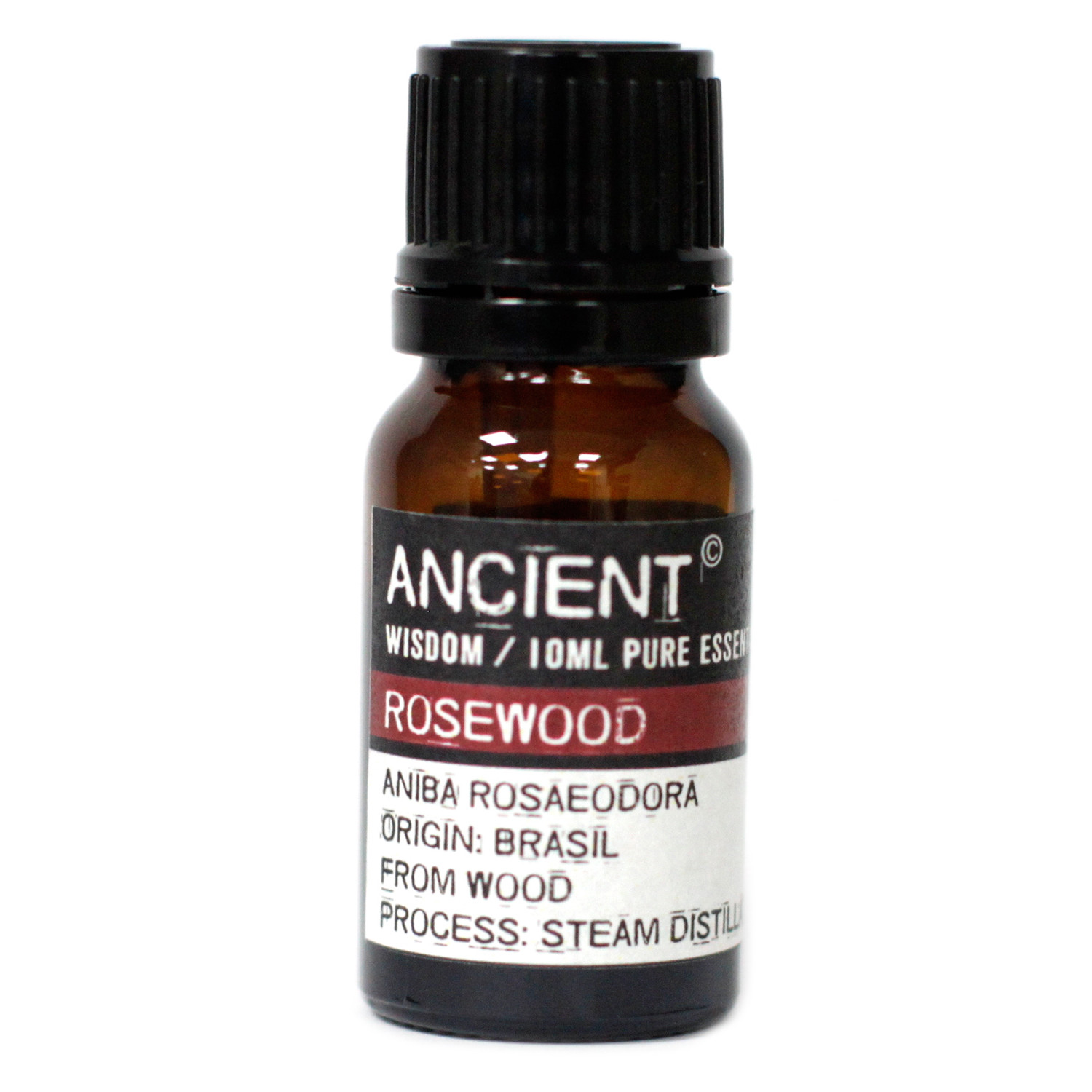












Reviews
There are no reviews yet.